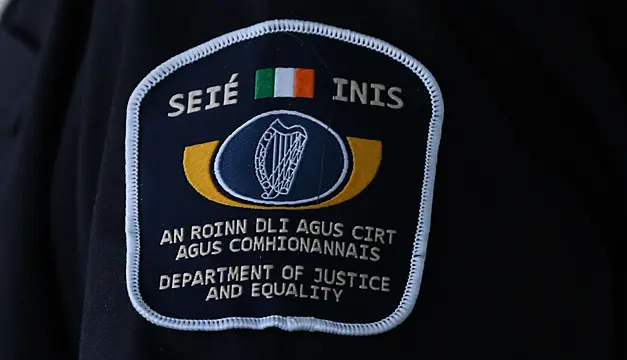The Supreme Court has upheld the Minister for Justice's decision to refuse residency under a special student scheme to an Indian woman found to have entered into a sham marriage and a Pakistani man found to have submitted false documents in support of his application.
In delivering a unanimous judgement of the court on Friday, Ms Justice Iseult O’Malley said that the respondent's actions "could be seen as an attack on the integrity of both the State’s and the EU’s immigration systems".
However, the court noted that both of the respondents have been granted permission to remain in Ireland under the Regularisation of Long Term Undocumented Migrants Scheme.
Ms Justice O’Malley said the court found that the Minister had correctly engaged in reviewing all the materials submitted by both applicants, including character references and work history documents.
After a High Court ruling upholding the Minister’s decision on the revocations, both applicants successfully obtained a quashing of that decision on appeal because the Minister was found not to have “engaged sufficiently with the submissions made by the respondents at the review stage”.
This decision was then appealed by the Minister to the Supreme Court in relation to the extent of their duty to engage with all material submitted by an applicant.
Ms Justice O’Malley said the two non-European Economic Area (EEA) nationals had attained student visa permission to stay in Ireland before 2011 but the permission for both to remain in the State later expired.
After the expiries, both respondents acquired a different residence permit through marriage to non-Irish EU citizens. The Minister revoked each case for both to remain in the State under the ‘Special Scheme’, based on a determination that the “individuals were not of good character and conduct”.
The ‘Special Scheme’ was introduced in 2018 to allow certain non-EEA nationals who held student permission between 2005 and 2010 to apply to remain in the State.
In relation to Indian national Sangeeta Rana, the Minister held that she had entered into a “marriage of convenience” to remain in the country under EU law. Ms Rana entered the State on a student visa in October 2009. The visa was due to expire in October 2014 but in September 2014 Ms Rana married a Lithuanian citizen and on foot of that marriage she was granted residence permission for five years in March 2015.
In October 2016, Ms Rana gave birth to a baby whose father was an Indian national and she did not seek a renewal of her registration card when it expired in September 2017.
Ms Rana’s Lithuanian husband, the Minister stated, was linked to and residing with his partner in Lithuania since February 2011 and had a child with her.
The Minister alleged to Ms Rana that her documents were “false and misleading and that she had knowingly submitted them to gain rights they would not otherwise have been entitled”.
Estonian wife
Lehrasib Ali, a Pakistan national, obtained a student visa in 2007 which expired in 2013. In September 2012 Mr Ali married an Estonian citizen and was granted a five-year residency in 2014. Subsequently the Minister wrote to Mr Ali in December 2014 saying that his wife was in Estonia and had two children there.
The Minister submitted that Mr Ali had put forward “documentation [as to his wife's whereabouts] that was false and misleading and that this was a fraudulent act”.
There was no finding that his marriage was one of convenience.
The Court of Appeal, ruling in favour of both parties, held that the Minister did not properly assess the issue of “good character” and “could not be said to have engaged sufficiently with the submissions made by the respondents for the purpose of reviewing the refusals”.
Separately, both of the respondents have been granted permission to remain under a different scheme called “Regularisation of Long Term Undocumented Migrants”.
In her ruling on Friday, Ms Justice O’Malley said the “refused individuals [to the ‘Special Scheme’] retained all relevant rights under ECHR protections” and ruled that the Minister was right to refuse applicants under the ‘Special Scheme’ criteria.
Ms Justice O’Malley said she did not see “any inconsistency” in finding that an individual could fail a good conduct requirement for one purpose but pass it for another.
“Their actions could be seen as an attack on the integrity of both the State’s and the EU’s immigration systems, as they claimed EU rights to which they were not entitled,” said the judge.
In finding for the Minister, Ms Justice O’Malley said, regarding whether the decisions adequately fulfilled the duty to provide reasons, a previous Supreme Court decision “made it clear that a statement by a decision-maker indicating that all material had been considered was sufficient, unless there was evidence suggesting otherwise."
“There was no apparent benefit to providing more detailed reasoning,” said Ms Justice O’Malley.







